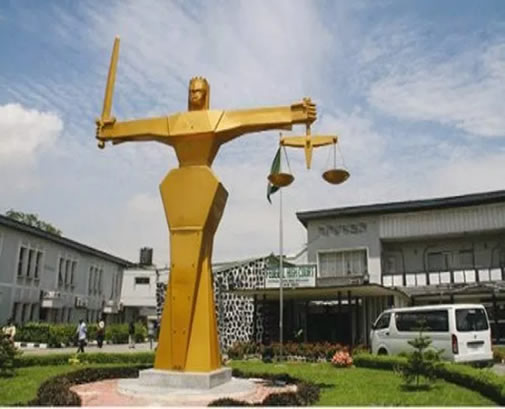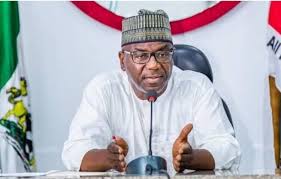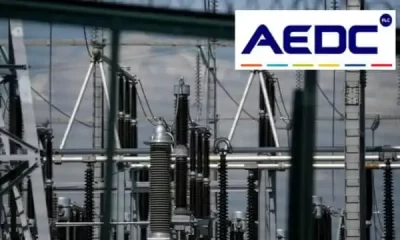Oil & Gas
Another Hike Looms in PMS, Kerosine, Diesel Prices

By Tony Obiechina, Abuja
The prices of premium moto spirit (PMS), kerosine and diesel may increase as the Federal Government proposed to add the costs of managing the national strategic stocks of petroleum products to the retail price of the commodities.
The proposal, which is included in the 2020 Petroleum Industry Bill, PIB, currently before the National Assembly, might lead to a hike in the pump price of Premium Motor Spirit, PMS, also known as petrol, as well as kerosene and diesel, going forward.
This means that on the passage and signing into law of the PIB, the price of petrol might rise, other things being equal, as the cost of managing the national strategic fuel stocks would, from then, form an integral component of the pricing template of petroleum products pricing and would determine the pump price of the commodities.
Current components of the pricing template, apart from the landing cost, is the National Transportation Average, NTA; NPA charges, marketers margin and transportation costs.
The Federal Government had, few years back, proposed the inclusion of a certain amount of money as road maintenance charges and fuel tax in the retail price of petrol, but had to suspend the plan, because of resistance from Nigerians.
The Nigerian Midstream and Downstream Petroleum Regulatory Authority, which is the body that would emerge from the scrapping of the Petroleum Products Pricing Regulatory Agency, PPPRA, and the Petroleum Equalisation Fund, PEF, is to be saddled with the responsibility of setting up and managing the national strategic stocks of petroleum products.
The PIB is proposing that that the Nigerian Midstream and Downstream Petroleum Regulatory Authority would determine the amount to be charged as levy for financing the strategic petroleum products’ reserves, which would form part of the retail price of each of the petroleum products.
It is also mandating the Nigerian Midstream and Downstream Petroleum Regulatory Authority to work with security agencies in deciding areas of the country where the national strategic stocks would be maintained and distributed.
The PIB stated that: “The Authority shall: establish, administer and ensure the storage and distribution of the national strategic stocks of petroleum products in accordance with regulations issued by the Authority;
“Determine and publish the amount to be charged as a levy for the financing of the national strategic stock, which shall form part of the retail price of each petroleum product, such levy to be determined as a percentage of the retail price and be deducted on wholesale basis.
“Designate, in consultation with the appropriate authorities and national security agencies, the strategic locations across the country where the national strategic stocks shall be distributed and maintained.”
The PIB is also proposing that facilities and infrastructure which are to be specifically defined by the soon-to-be-established Nigerian Midstream and Downstream Petroleum Regulatory Authority for the storage of national strategic stocks would be exempted from the provisions of the law relating to open access.
In addition to managing the national strategic stocks of petroleum products, the PIB is saddling the Nigerian Midstream and Downstream Petroleum Regulatory Authority with other functions, including regulating and monitoring technical and commercial midstream and downstream petroleum operations in Nigeria.
The authority is also to regulate commercial midstream and downstream petroleum operations, including: petroleum liquids operations, domestic natural gas operations, and export natural gas operations.
It is also to determine appropriate tariff methodology for processing of natural gas, transportation and transmission of natural gas, transportation of crude oil, and bulk storage of crude oil and natural gas.
The Nigerian Midstream and Downstream Petroleum Regulatory Authority would set cost benchmarks for midstream and downstream petroleum operations; provide pricing and tariff frameworks for natural gas in midstream and downstream gas operations and petroleum products based on the fair market value of the applicable petroleum products.
Oil & Gas
NNPC Ltd. Disclaims Fake Financial Scheme

The Nigerian National Petroleum Company Limited (NNPC Ltd.) has disowned a fake AI-generated video circulating on social media featuring a cloned voice of the Group CEO, Mr Bayo Ojulari, promoting a fictitious poverty alleviation scheme.
The Chief Corporate Communications Officer, NNPC Ltd.
, Olufemi Soneye in a statement on Thursday clarified that the company had no such investment initiative.Soneye urged the public to disregard the video, originally shared by an account named Mensageiro de Cristo on Facebook.
“NNPC Ltd. has warned the perpetrators to cease their fraudulent actions or face legal consequences,” he said. (NAN)
NEWS
NGEP Urges Gas Reticulation In Buildings

By Olasunkanmi Onifade
Abuja, April 29, 2025 The National Gas Expansion Programme (NGEP) has called on stakeholders to promote the integration of gas reticulation systems in estates, districts, and industrial areas, following best practices seen in developed countries.
Chairman of NGEP, Prof.
Mohammed Ibrahim, made the call on Tuesday during the Builders’ Conference and Annual General Meeting of the Nigerian Institute of Building (NIOB), FCT Chapter, in Abuja.The conference, themed “Gas Reticulation in Building: Design, Safety, Environmental Compliance and Prospects for Builders,” focused on enhancing energy infrastructure in Nigeria’s built environment.
Ibrahim noted that with Nigeria’s vast natural gas reserves, gas reticulation offered a sustainable solution to improve energy accessibility, affordability, and reliability in homes and businesses.
“Gas reticulation in buildings presents a compelling pathway to a more sustainable, efficient, and resilient built environment.
“By prioritising sound design principles and ensuring strict adherence to safety and environmental standards, we can unlock the full potential of natural gas to drive progress,” he said.
He highlighted the key benefits of gas reticulation, including energy efficiency, cost effectiveness, versatility, and reliability.
Also speaking, the Chairman of the Council of Registered Builders of Nigeria, Samson Opaluwah, stressed the importance of capacity building for safe and efficient gas distribution.
He said this involved training engineers, technicians, and other professionals in system design, installation, and maintenance, while also strengthening regulatory frameworks and encouraging local innovation and manufacturing.
The Chairman of NIOB, FCT Chapter, Usman Okehi, emphasised the growing need to incorporate gas systems in residential, commercial, and industrial developments across Nigeria due to rising energy demands and gas availability.
According to him, with this advancement comes the need for strict adherence to design standards, rigorous safety protocols, and full environmental compliance.
“It is our responsibility as professionals and regulators to ensure these systems are functional, safe, and environmentally sound,” Okehi said.
He described the conference as a platform where stakeholders could explore the evolving landscape of gas infrastructure in building projects, share best practices, examine safety and environmental considerations, and assess future opportunities for builders in the sector.
The News Agency of Nigeria (NAN) reports that the Nigerian Institute of Building is the professional body for builders in Nigeria. It traces its origins to the Builders’ Society, established in London in 1834.
Oil & Gas
FG Inaugurates Committee to Enhance Gas Distribution in Urban Buildings

The Ministry of Petroleum Resources has inaugurated a Technical Working Group to enhance gas reticulation practices in Nigeria’s building industry.
The ministry’s Permanent Secretary, Amb. Nicholas Ella inaugurated the Technical Working Group (TWG) between the National Gas Expansion Programme (NGEP) and the Council of Registered Builders of Nigeria (CORBON) on Wednesday.
Reports= says that reticulation refers to the process of creating a network of pipes or tubes to distribute gas or other utilities to buildings or industrial sites.
The permanent secretary restated the importance of creating energy smart cities, saying that modern urban development relies on efficient gas and utility distribution systems,
“Most modern cities in developed countries have evolved to energy smart cities where energy, specifically gas and other utilities are piped to districts and estates.
“However, one of the key tools in creating energy smart city is the National Building
Code which, in essence, sets the guidelines on Building Pre-design, designs, construction and post-construction stages,” he said.
The permanent secretary reiterated the benefits of reticulated gas systems for households and businesses alike, adding that it ensured metered supply akin to water and electricity,
According to him, it eliminates the need for cumbersome refills, and also enhances safety by burying pipes and incorporating advanced safety equipments.
“The TWG is tasked with designing a comprehensive policy to implement best practices for gas reticulation using LPG, PNG, and Bio-Gas across Nigeria’s building sector.
“Key responsibilities include reviewing the current National Building Code, examining global gas distribution systems, and proposing quality standards for materials used in gas installations,” he said.
The permanent secretary emphasised the need for rigorous safety protocols and guidelines to ensure the efficient and safe use of gas in construction.
He urged the group to prioritise environmental sustainability in its recommendations, adding that the group is expected to submit its report by Nov. 15.
Earlier, Mr Samson Opaliwah, the Chairman of CORBON. expressed the council’s commitment to collaborate with the group to ensure safe uptake of gas for use in houses and housing estates in Nigeria.
“I assure you of the williness of CORBON to leverage the expertise and resources at her disposal to ensure that steps are put in place for gas infrastructure in buildings and estates.
“The gas infrastructure will be safe, sustainable and world-class.
” Our collective efforts will yield clear, standardised guidelines for safe and effective gas systems in buildings, matched with a skilled workforce to meet growing demands in Nigeria,” he said. (NAN)






























